Camera, photo and video quality
GoogleAds
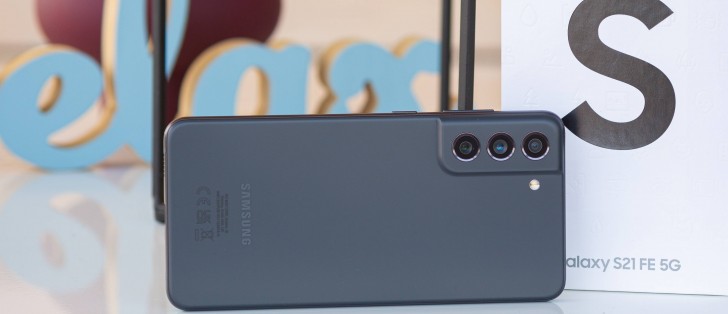
Same cameras, new brains
It seems that Samsung has decided on using the same cameras as the Galaxy S20 FE. That’s not a critique per se, as we were quite happy with the S20 FE experience. The tri-camera setup on the back consists of a 12MP primary, a 12MP ultrawide, and an 8MP telephoto cameras. The front camera is a 32MP Quad-Bayer shooter.
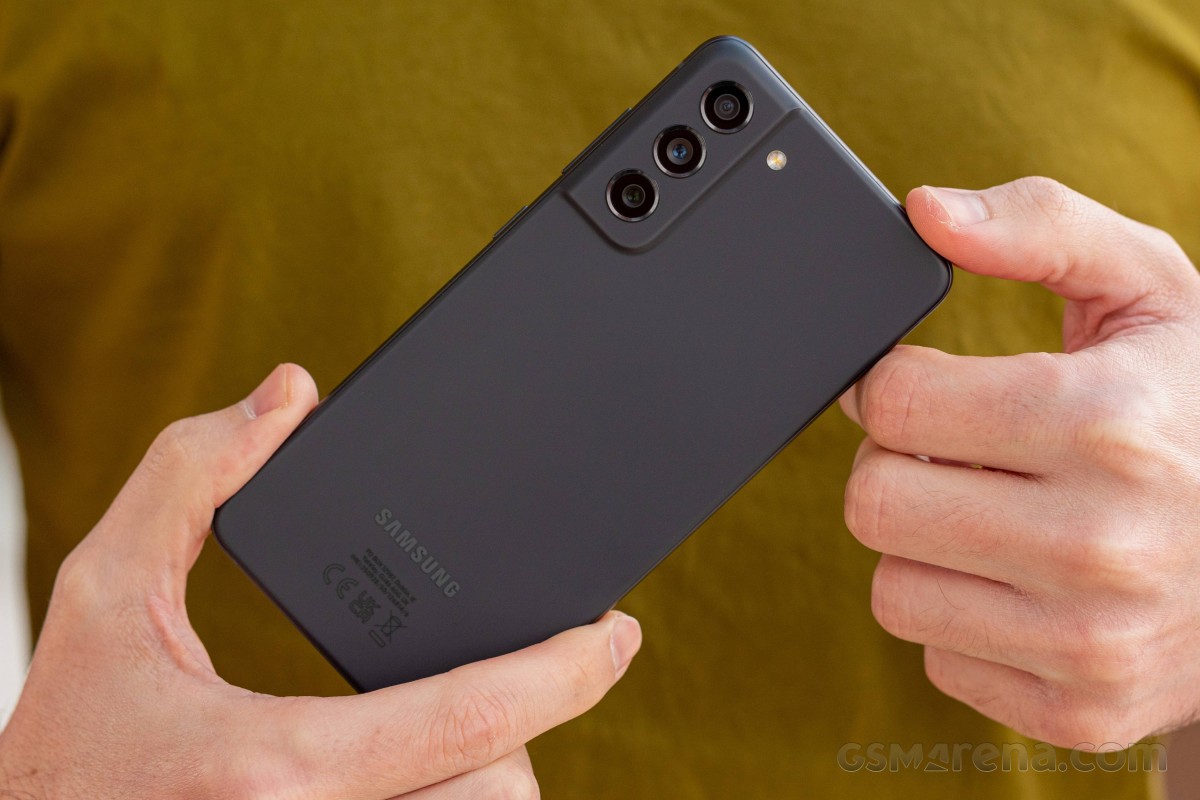
So, just like the Galaxy S20 FE, the Galaxy S21 FE has a 12MP camera that uses different sensors depending on the chipset model. The Snapdragon 888 version (ours) gets the Sony IMX555 sensor, while the Exynos model relies on Samsung S5K2LD. Both imagers have 1.8µm pixels, Dual-Pixel AF, and sit behind 26mm f/1.8 OIS lens.
The ultrawide camera is a bit of an oddball – it has either Sony IMX258 or the Hynix Hi1336 – both are 13MP sensors with 1.12µm pixels behind 13mm f/2.2 lens and with a focus fixed at infinity. Whatever sensor turns out in your Galaxy S21 FE, it will save 12MP images – as advertised by the PR materials.
The 8MP zoom camera uses a Hynix Hi847 sensor (just like the S20 FE) with 1.0µm pixels and 76mm f/2.4 OIS lens for 3x optical zoom over the main camera. And just like on the previous Fan Edition, this zoom camera also saves a bit upscaled 12MP photos for whatever reason.
Finally, the 32MP selfie camera is also identical to the one on the S20 FE – it relies on a Sony IMX616 Quad-Bayer sensor with a 25mm f/2.2 lens, and a focus fixed at infinity. This camera, contrary to the majority of the Quad-Bayer selfie shooters, saves native 8MP images.
The camera app is the same you’d find on every Samsung phone these days. Swiping left and right will switch between all available modes, and there’s an option to re-arrange or remove some of the modes from the viewfinder. Vertical swipes in either direction will switch between front and rear cameras.
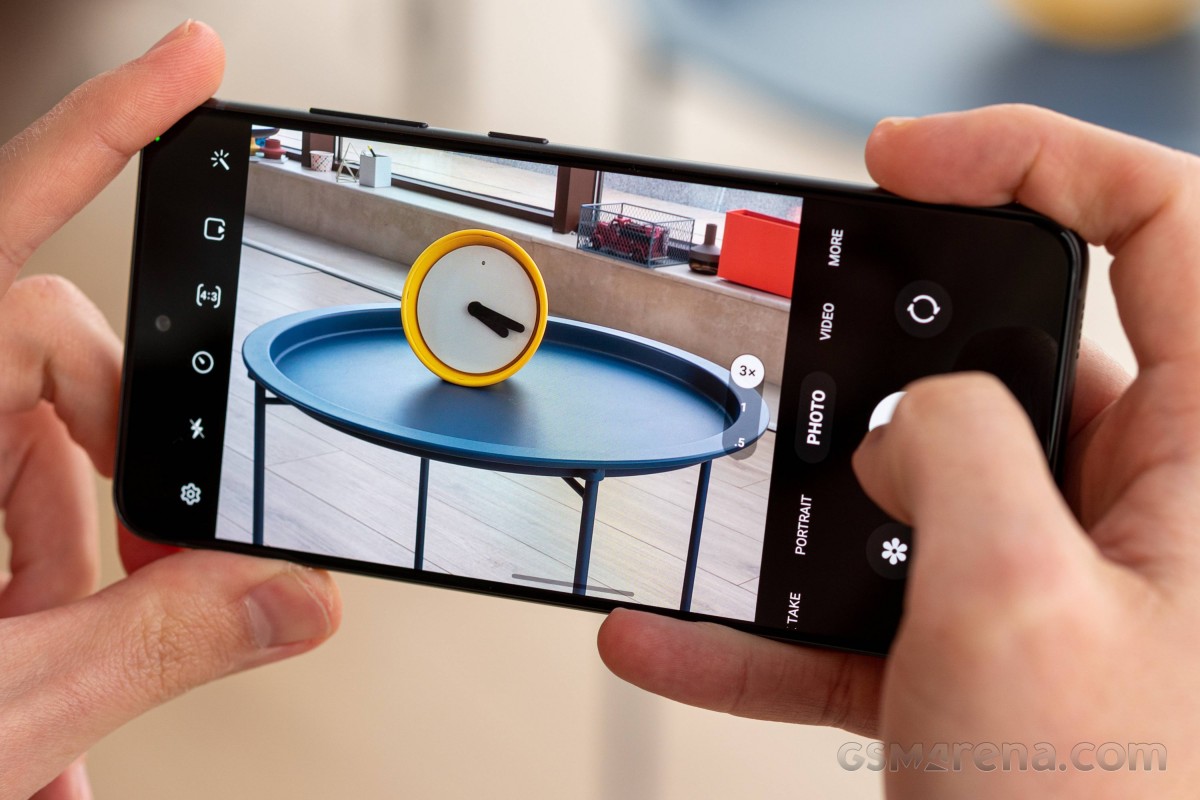
All cameras support Night Mode. There’s a Pro mode, too, but it works only on the main and ultrawide imagers. You get granular exposure controls and manual focus with peaking, up to 30s shutter speed control (0.5s for UW), but no live histogram.






Camera app
There is a 32MP resolution mode for the selfie camera available as part of the aspect options.
Photo quality
The 12MP default photos from the Galaxy S21 FE’s main camera are excellent. The resolved detail is a lot, the sharpening is not over the top, and there is zero noise. The contrast is notably high, while the dynamic range remains very good.
The colors are quite pleasant, even if not perfectly accurate – they came out looking a bit warmer than they really were in real life, but that’s fine. Most people would probably prefer them like this instead of, say, Apple’s painfully accurate representation.
Overall, the main camera of the new S21 FE excels in daylight conditions. Auto HDR and the Scene Optimizer were set at ON for the entire time.















Main camera, 12MP
The 12MP images from the ultrawide camera are incredibly good, too, especially for this type of shooter. They have enough detail, reasonable sharpness, and once again – we cannot see any noise where it matters. The contrast is great, and the dynamic range is also commendable considering the demanding weather.
The colors are nicely popping, a match to the main camera, and just a bit warmer and punchier than they should have been. But that’s the Samsung way of showing the world, and we do like it.
The corners are softer because of the nature of the 13mm ultrawide-angle lens and the automatic distortion correction. This camera has a 13MP sensor, but it saves 12MP images, and our guess is that the corner straightening involves a minor crop, too.
Anyway, we are once again happy with the photos, and we wouldn’t change a thing. Well…maybe add autofocus, so we can shoot macro photos, but that’s another thing going on the S22 FE wishlist.













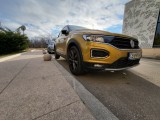

Ultrawide camera, 12MP
Now, let’s talk about the zoom camera. It uses an 8MP sensor, and yet, it saves 12MP photos. It appears those are upscaled from the original resolution, and the pixel peepers could probably tell that.
These 12MP pictures from the telephoto camera are quite nice nonetheless. Their resolved detail is in the high range, even if the sharpness isn’t on par with the other cameras because of the minor upscaling.
The contrast, dynamic range and color presentation are a match to the rest of the cameras, too, meaning you get high contrast, high dynamic range, and a bit warmer and punchier colors than they actually were that day.
The noise is handled well, too, and it’s barely noticeable, mostly in areas of uniform or dark colors.
We would have been happy with the native 8MP photos, but we guess Samsung once again had a different thing in mind.















Zoom 3x camera, 12MP
The Galaxy S21, which is probably a direct competitor to the Galaxy S21 FE, has a different type of zoom camera – it’s a 64MP shooter with minor 1.1x optical zoom, and it relies on digital zooming and some software to achieve the zoom. We were curious how its camera compares to the S21 FE’s 3x optical zoom unit.
In broad daylight, the Galaxy S21 FE telephoto camera is the better shooter, even if by a small margin. The S21 FE offers sharper images with less noise, noticeably better contrast, and more likable colors.
The difference in the resolved detail isn’t a major one, but the S21 FE has the upper hand – especially if you crop the photos or inspect them from up close.






Galaxy S21 FE






Galaxy S21
Portrait mode is available on the Galaxy S21 FE, and while it defaults at the 3x zoom camera, you can switch to the primary one as well.
The 12MP 3x zoomed portraits offer proficient subject separation and incredibly pleasant bokeh, but the subjects are often soft and/or a bit noisy.




3x camera, portraits
The portraits from the main camera also excel in separation and bokeh, but their subjects are much sharper, more colorful, and the contrast is better. The noise levels are much lower, thanks to the brighter lens.




Main camera, portraits
Low-light photos
The 12MP low-light photos from the main camera are superb. They are rich in detail, contrasty, with excellent color saturation, high dynamic range and realistic exposure and look. The noise is low, though sometimes more noise is spared in favor of preserving intricate details – as it should be.












Main camera, 12MP
While Auto HDR succeeds in restoring most clipped highlights in the normal shooting mode, it doesn’t do much for brightening up the shadows. If you want brighter night-time photos, then you switch to Night Mode.
The Night Mode usually uses 2s exposure time for the main camera, and it does offer brighter photos with improved exposure. More detail appears in the shadows and the sky, the noise is proficiently cleaned without destroying detail in the process.
While the Night Mode photos are brighter, they are not over the top, and if you need better exposure at night, we suggest using this option.










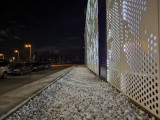

Main Night mode, 12MP
The 12MP ultrawide photos at night offer good color saturation, life-like exposure and higher than expected dynamic range, they are often extremely soft and overrun by noise. We’d recommend using Night Mode.







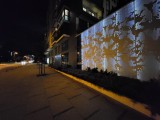


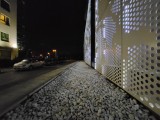

Ultrawide camera, 12MP
The Night Mode on the ultrawide camera produces likable photos with enough detail, low (or at least tolerable) noise, improved exposure and dynamic range, and excellent color saturation. These Night Mode images are not as great as the ones from the main camera, but they are much better than the default ones and perfectly usable.










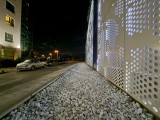

Ultrawide Night Mode, 12MP
The Galaxy S21 FE rarely uses the telephoto camera when shooting regular photos. Most of the time, the low-light 3x zoomed photos you are going to shoot will turn out to be cropped and upscaled from the main camera’s output. And you can easily tell that – while good looking, they are quite soft and lacking in detail.
The camera app decided to use the actual telephoto camera only for the last scene – the photo is noisy, but with a lot more detail and more natural-looking.









Zoom camera, 12MP
Using Night Mode when you’ve selected 3x zoom does the opposite – it uses mostly the zoom camera and rarely resorts to digital zoom over the main one (sixth photo).
The 3x Night Mode images are alright, even if nothing impressive. They are saved in 12MP, meaning they are upscaled from 8MP, and here that’s even more obvious. The detail is still satisfactory, and so are the exposure, the contrast, and even the noise reduction. The images are bright, but not over the top, and overall we suggest using 3x zoom with Night Mode if you need to zoom in low-light conditions.









Zoom Night Mode 12MP
And once again, we are pitting the S21 FE and the S21 zoom cameras against each other, this time at night.
The Galaxy S21 is also picky about which camera to use for zooming. We’ve selected samples only taken with the dedicated zoom camera. The digital zoom on both phones is equally unimpressive.
The standard low-light photos with the S21 zoom camera are noisier, darker and softer than the S21 FE’s, which makes it easy for the S21 FE to win here.



Galaxy S21 FE 3x zoom



Galaxy S21 3x zoom
The Galaxy S21 put up a good fight when using Night Mode, and its photos are almost as good as the S21 FE’s, meaning its Night mode is quite proficient. Almost is the keyword here, as the S21 FE still has the edge with its slightly sharper photos.



Galaxy S21 FE 3x zoom with Night Mode



Galaxy S21 3x zoom with Night Mode
And here are photos of our usual posters taken with the Samsung Galaxy S21 FE 5G. You can see how it stacks up against the competition. Feel free to browse around and pit it against other phones from our extensive database.
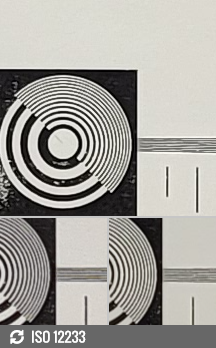


Samsung Galaxy S21 FE 5G against the Samsung Galaxy S21 5G and the Galaxy S20 FE 5G in our Photo compare tool
Selfies
This is not the year the Fan Edition is getting a proper selfie camera with autofocus, but this doesn’t mean the 32MP camera isn’t good.
The selfie camera on the Galaxy S21 FE, just like on many other Samsung phones, features a toggle to determine how wide the frame will be. This setting annoyingly defaults to the narrower option. Selfies come out in 8MP by default, which is good, though 32MP mode is available, too.
The selfie camera captures some great-looking selfies. They’re natural-looking, with low noise, balanced sharpness, and excellent colors, contrast, and dynamic range.
The fixed focus sweet spot, however, is not ideally tuned for shooting at an arm’s length, so selfie sharpness is less than stellar.
The last photo was shot in 32MP, but it looks like an upscaled version of the standard image.






Selfies
The portraits taken with the selfie camera are great-looking, too. The subject separation is proficient enough, the blur looks nice, and the subjects are well exposed, detailed and colorful.




Portrait selfies
Video recording
The Galaxy S21 FE 5G captures 4K@30fps videos on all cameras, while 4K@60fps is available only to the main and selfie cameras.
The primary and the telephoto cameras support optical image stabilization. Optional electronic stabilization is available for all cameras and works on all resolutions and frame rates.
The video bitrate is generous at 48Mbps in 4K. Audio is captured stereo with a 252Kbps bitrate.
The 4K clips from the main camera are very good – the captured detail is above the average, the dynamic range is outstanding, the colors are great, and the noise is low. We expected a bit more sharpness, but even as is, the 4K footage is admirable.
The 4K ultrawide videos are not that good. They do show a superb dynamic range and likable colors; the contrast is good, too. But the videos are soft, and the detail is mediocre.
The 4K videos from the 3x telephoto camera are quite nice. There is plenty of detail in them; they are sharp, and share all likable qualities we observed on the main camera – great colors, dynamic range, contrast, and even low noise.
The low-light videos from the main camera are alright – they have good color saturation and realistic exposure. They are a bit soft and noisy, but there is enough preserved detail, and they are very much usable.
The low-light ultrawide clips are surprisingly usable, too, even if they are much darker. The gentle noise reduction leaves a lot of detail visible, the exposure is not bad, and the colors aren’t that much desaturated. We’d still use this camera only in extreme cases at night, though.
Usually, digital zoom over the main camera is used when shooting zoomed videos at night, and that’s the case with the Galaxy S21 FE. You can tell the 4K clips are upscaled, but they still look good on any 1080p phone.
Finally, here is the Samsung Galaxy S21 FE 5G in our video comparison database.
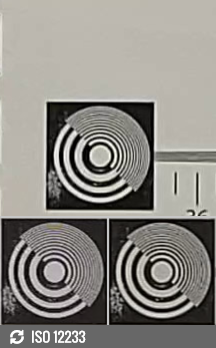


2160p: Samsung Galaxy S21 FE 5G against the Samsung Galaxy S21 5G and the Galaxy S20 FE 5G in our Video compare tool
Source : https://www.gsmarena.com/samsung_galaxy_s21_fe_5g-review-2365p5.php
Author :
Date : 2022-01-16 09:00:00
GoogleAds




